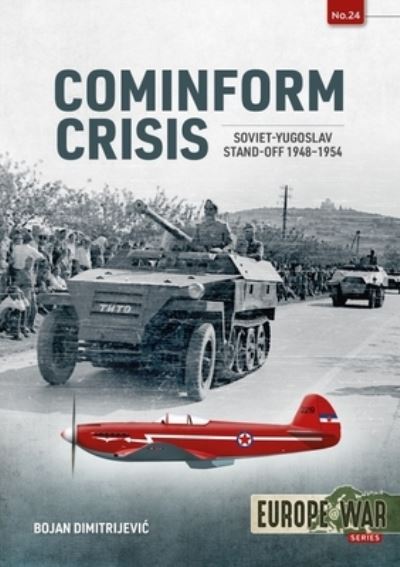
COMINFORM Crisis describes the first armed conflict within the Communist world after the Second World War. This occurred between Tito's Yugoslavia and the states led by the Soviet Union, in the period between 1948 and 1954. It start with an explanation of the process of "Sovietization" of the former Yugoslav Partisan Army, its ambitious development plans, and its influence in neighbouring Albania, Bulgaria and in Greek Civil War, all of which led to growing suspicions amongst the Soviet leadership, especially Stalin. This would lead to the slow break up of mutual ties in spring of 1948, and finally to the Cominform Resolution on 28 June 1948. The Resolution marked the start of the conflict that would last for almost seven years. Communist brothers-in-arms became bitter enemies and Yugoslavian borders with the communist countries of Albania, Bulgaria, Rumania and Hungary became front lines. The political clash turned into open hostilities at the borders: with firing at border-guards, attacks on border posts, intrusions by agents and armed groups, and surveillance and troop movements. Despite Tito's Yugoslavs being frightened by the expectation of aggression from East, no invasion was launched and the war in the Korean Peninsula turned the attention of the Soviets and Americans to the Far East. Ultimately, the Cominform-Yugoslav conflict came to a slow end; through the acceptance of Yugoslavia into the US Mutual Defence Aid Programme in November 1951; and after the Stalin death in March 1953. COMINFORM Crisis describes the Yugoslav Army's organisation, stressing the differences in pre-1948 and later reorganizations during the conflict, and provides the reader with detailed orders of battle of the Yugoslav Army based on archival research. COMINFORM Crisis also describes the attempts of the Yugoslavs to establish an indigenous defence industry during this period to overcome the problem of the supplying its army, stressing the development of the first Yugoslav tank, piston engine fighters, several types of vessel for the navy, and series of small arms. This book also examines the work of the Yugoslav military Counterintelligence Service (KOS) and State Security (UDBA) in the widespread struggle with the Soviet and satellite intelligence services on the borders and in the ranks of the army and security forces.
| ISBN: | 9781804510285 |
| Publication date: | 15th October 2022 |
| Author: | Bojan B DimitrijeviÔc |
| Publisher: | Helion & Company |
| Format: | Paperback |
| Pagination: | 104 pages |
| Series: | Europe@war |
| Genres: |
Military history Far-left political ideologies and movements Left-of-centre democratic ideologies |